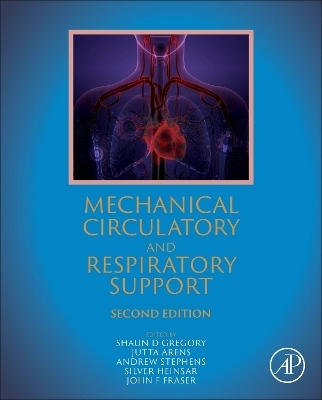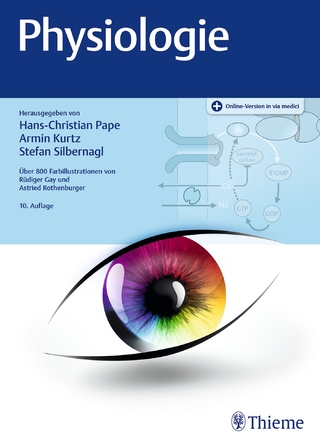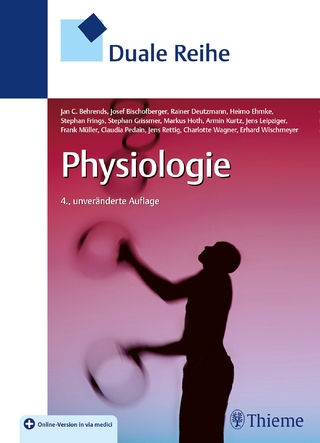
Mechanical Circulatory and Respiratory Support
Academic Press Inc (Verlag)
978-0-443-22148-4 (ISBN)
Shaun D. Gregory is a Cardiovascular Engineer with a focus on mechanical circulatory and respiratory support. He brings together multidisciplinary teams of engineering, biomedical science, design, and medicine to develop novel technical solutions for clinically relevant problems. Dr. Gregory is a Professor at the School of Mechanical, Medical, and Process Engineering at Queensland University of Technology (QUT), Director of the QUT Centre for Biomedical Technologies, Co-Director of the Artificial Heart Frontiers Program, Director of the Heart Hackathon international student team competition, and President-Elect of the International Society for Mechanical Circulatory Support. Andrew F. Stephens is a Biomedical Engineer specializing in medical sensors and smart devices. He completed his PhD at Griffith University developing new ways to control artificial heart devices. Dr. Stephens is a Senior Lecturer at Queensland University of Technology and a Director of the Advanced Cardiorespiratory Engineering Laboratory. Silver Heinsar is an emerging Clinician Researcher at the University of Queensland with a focus on mechanical circulatory support and a special interest in extracorporeal membrane oxygenation. He completed his PhD at the University of Queensland, for which he received the Dean’s Award for Outstanding HDR Thesis. His contributions to ECMO research are internationally recognized as he is the first dual recipient of the prestigious European Extracorporeal Life Support Organization Young Investigator Award. Jutta Arens is a Mechanical Engineer and a Professor in Engineering Organ Support Technologies at the University of Twente in the Netherlands. She completed her PhD and Habilitation at RWTH Aachen University, Germany. She is a member of the Board of Trustees of the American Society of Artificial Organs, the Scientific Advisory Board of the German Federal Institute of Drugs and Medical Devices (BfArM), and the International Standardization Organization´s ISO/TC 150/SC 2 working group 4–Extracorporeal Circuits. John F. Fraser is a Founder/Director of the Critical Care Research Group, a Director of the ICU at St Andrew’s War Memorial Hospital, and a President of Asia Pacific ELSO and holds five professorships across Australian universities. He is the Inaugural Ambassador for MedTech in his home state of Queensland. With more than 600 publications mainly in the heart and lung arena, he has been awarded numerous international awards for his research and continues to contribute to the education of generations of clinicians, scientists, and engineers.
Section 1 - Before the Device
1. The Descent into Heart and Lung Failure
2. Heart and Lung Transplantation
3. Ex-vivo Organ Support
Section 2 - MCRS Devices
4. Ventricular Assist Devices: Volume Displacement Pumps
5. Ventricular Assist Devices: Rotary Blood Pumps
6. Total Artificial Hearts
7. Devices for HFpEF
8. Extracorporeal Membrane Oxygenation
Section 3 - Implantation and Medical Management
9. Optimising the Patient and Timing the Introduction of MCS
10. Surgical Implantation
11. Complications and Adverse Events
12. Medical Management of the Supported Patient
13. Pediatric devices
Section 4 - Device Design
14. Hydraulic Design
15. Motor design and Impeller Suspension
16. Design for Manufacture
17. Pulsatile vs Continuous Flow
18. Cannula Design
19. Oxygenator Design
Section 5 - Device/Patient Interaction
20. Blood-Device Interaction
21. Physiological Control
22. Systems for Power and Data Transfer
23. Wearable Systems
Section 6 - Route to Market
24. Route to Market
25. Preclinical Evaluation
26. Clinical trials
27. Cost Effectiveness
28. Regulatory approvals
Section 7 - Future
29. The Past, Present and Future
| Erscheinungsdatum | 05.11.2024 |
|---|---|
| Verlagsort | San Diego |
| Sprache | englisch |
| Maße | 191 x 235 mm |
| Gewicht | 450 g |
| Themenwelt | Medizin / Pharmazie ► Physiotherapie / Ergotherapie ► Orthopädie |
| Studium ► 1. Studienabschnitt (Vorklinik) ► Physiologie | |
| Technik ► Medizintechnik | |
| Technik ► Umwelttechnik / Biotechnologie | |
| ISBN-10 | 0-443-22148-0 / 0443221480 |
| ISBN-13 | 978-0-443-22148-4 / 9780443221484 |
| Zustand | Neuware |
| Informationen gemäß Produktsicherheitsverordnung (GPSR) | |
| Haben Sie eine Frage zum Produkt? |
aus dem Bereich


